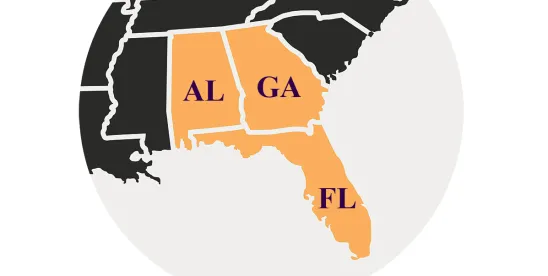The phrase “no good deed goes unpunished” represents the figurative irony that results when one seeking to help gets penalized instead. United States v. Moore, a recent decision from the 11th Circuit Court of Appeals, reflects the court’s concern that the expression had been interpreted as a literal directive by a prosecutor in the United States Attorney’s Office for the Southern District of Florida (USAO-SDFL). While the ruling arises from an unusual factual scenario, the court’s holding is rooted in the concept that the prosecutor, presumably motivated by his mission “to enforce and defend the laws of the United States of America,” improperly balanced that obligation with the reasonable exercise of prosecutorial discretion.
In its ruling issued September 23, 2024, the 11th Circuit upheld the convictions of two defendants convicted for theft of property within special maritime jurisdiction. While working on a shark tour boat crew, the defendants discovered a “longline fishing line,” which they mistakenly believed to be part of an illegal shark poaching operation. Concerned that the line would endanger sharks, the defendants pulled it from the ocean, cutting free the sharks caught on the hooks as they did so.
Evidence of the defendants’ good faith abounded. Upon discovering the line, they called a state wildlife official to report their concerns about illegal fishing and to advise that they cut the sharks free. They also encouraged the tour participants to participate in and even film their efforts. They made no effort to conceal their actions and even showed the wildlife official the fishing line, hooks, and fresh bait they gathered. The official instructed the defendants to retain the fishing line and gear for his investigation and, unfortunately, they failed to take adequate measures to do so. At some point later that day, the dockmaster at a nearby marina learned that the line and gear was left on his dock. The dockmaster instructed his employees to discard it, and they did so.
Further investigation later revealed the defendants were mistaken in their belief that poaching was occurring. The line was in fact lawfully placed to conduct shark research, which meant the defendants had no authority to gather the line and cut the sharks free. Despite the defendants’ apparent good faith, the USAO-SDFL charged them with the wrongful taking of the equipment in violation of 18 U.S.C §661.
The 11th Circuit’s majority opinion rejected the defendants’ sole argument on appeal – that the district court abused its discretion in refusing to give their requested jury instruction regarding the issue of theft. At the outset of discussing the defendants’ challenge, the majority opinion made a fleeting reference to “pre-indictment considerations” not in the record that may have impacted the USAO-SDFL’s exercise of prosecutorial discretion. The remainder of the opinion was confined to an analysis of precedent that foreclosed the defendants’ argument on appeal.
Judge Barbara Lagoa’s concurring opinion agreed that the majority correctly determined the jury instruction issue. She nevertheless expressed her “reluctance” to uphold the convictions in light of the USAO-SDFL’s questionable decision to prosecute, which she believed made the defendants “felons for having violated a statute that no reasonable person would understand to prohibit the conduct they engaged in.”
Judge Lagoa went so far as to directly criticize the prosecutor by name – a highly unusual measure that indicates a court’s strong displeasure. In doing so, she compared him to the rigid Inspector Javert from the musical Les Misérables and characterized his decision to prosecute the defendants as being rooted in “reasons that defy understanding.” Her disapproval of the decision to prosecute echoed further through her concurrence as she illustrated “the troublesome aspects of the case” with a series of progressively absurd hypotheticals. She ultimately demonstrated that even the most illogical scenario she concocted was less ridiculous than the approach the government applied. While her conclusion suggests that the court’s hands were tied given that the defendants raised only one issue on appeal, the primary takeaway from her concurrence is a striking criticism of the government’s “imprudent exercise of discretion.”
As a matter of precedent, the core legal issue addressed by the majority opinion – the proper jury instruction on the meaning of “steal” as used in 18 U.S.C. §661 – will likely have limited impact. Relatively few prosecutions are brought under that statute, and far fewer on a prosecutorial theory of the kind adopted in the Moore case. The more lasting impact will result from Judge Lagoa’s concurring opinion that, while recognizing the prosecutorial discretion vested in the government, lays bare the irrational manner in which it was exercised against the defendants. Judge Lagoa’s criticism has a sharp edge but is fully warranted on these facts and provides potentially valuable authority for an argument defense counsel frequently make prior to indictment, but often without specific precedent: Just because the government can charge a case does not mean it should.




 />i
/>i

